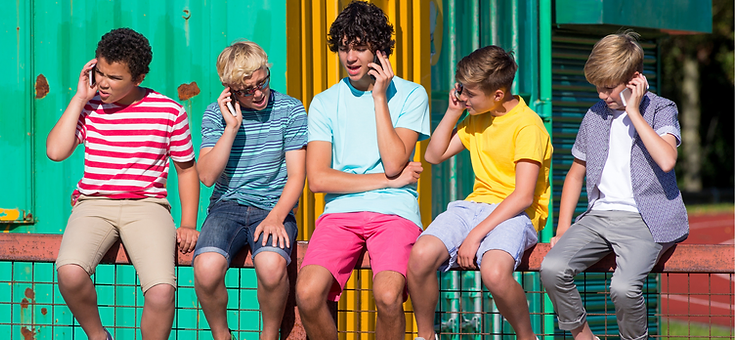
According to the urban dictionary ‘back chat’ is;
“Said to a younger person by an older person, if the younger person question the older person, who has no explanation or good reasoning for their demands.”
This actually made us laugh out loud. Of course, for us parents, back chat is when your child answers back in a rude or disrespectful manner. As parents of teenagers, this can be a frequent daily occurrence, so how much should you simply ignore and how much should you pull them up on!
As our children grow older, they start to develop their own opinions, have their views of situations and most certainly work out what they think is fair and not fair. Whilst they are trying to communicate, they often struggle to get their point across in a way that we feel is non-confrontational and respectful.
As a parent, you think you are doing what’s best, but they tell you different. One minute they are agreeing with you and the next minute completely ignoring you. It can seem like every time you open your mouth to offer some words of wisdom, pass comment on their hair, clothes etc or mention that they have homework to do, you are shot down in flames.
Disrespectful behaviour is one of the inappropriate ways kids, especially teenagers, try to solve their problems. They feel powerless in the face of rules and expectations, and talking back and showing disrespect is one way they try to take some power back and if they can drag you into the argument then bingo! Now you find yourself in a spat about how rude they are being, rather than focussing on the reason the argument started, which could be that they hadn’t done their homework!
The trick is to focus on the behaviour not the feeling. So, if the argument spirals into a tirade of nasty words about you, don’t take it personally. By all means, you need to highlight to them, that speaking unkind words to anyone is not nice but don’t let it fuel the exchange so that you end up doing the same thing.
As children get older, it’s natural for them to seek more independence and mild disrespect is one way that independence gets expressed. One of the pitfalls of adolescence is your teen thinking they know far more than you do; of course, they may be right in certain ways such as, how many followers so and so has on TikTok, but they think they are smarter and more in tune than their parents and this can result in regular conflict situations.
Children, especially teens, express their frustrations in various way, from eye rolling to scoffing and smirking. All of which might be new to you and as we all know, those mild, irritating behaviours can really get under your skin. They are looking for weak spots, places where they can drag you into defending yourself or your rules. They are trying to push the limits to see how far they can go, they are testing the boundaries, this can be a really difficult time for parents. Your children need to know that you have boundaries because setting boundaries and expectations for children can assist in building life skills that include; patience, problem solving, resourcefulness, responsibility and self-discipline. Boundaries equal love, remember that!
When you react emotionally to the situation (as though you are under threat), you are in defence mode and invariably will say something you will regret. Accepting that these behaviours are part of normal teen behaviour means you don’t have to necessarily correct everything. If they are good kids on the whole, with a few little outbursts here and there while trying to express their disregard for your rules, then it’s safe let it slide, but remind them once they are calm that conducting themselves in that manner does not aid their goals nor is it appropriate and respectful to you the adult.
If, however, they treat others badly while refusing to comply with rules and expectations then you need to correct the behaviour.
We have found that ignoring little outbursts ie. not racing up the stairs behind them to launch far more eloquent and accurate words, has worked wonders. Not only for our sanity but the sake of our relationships with our kids too!
So, just to recap, our top 5 tips for dealing with back chat are:
- Don’t take it personally.
- Ignore the actual words being said, they don’t mean them, even if they say they do.
- Remember your child’s back chat could be a reflection of something more going on.
- Don’t react unless you are calm.
- When the situation has passed, discuss what they have said or done and think of alternative ways to behave next time.
We hope this helps! Good Luck.
We know it’s not easy but we see you and we believe in you, Love CJ & Debs x


